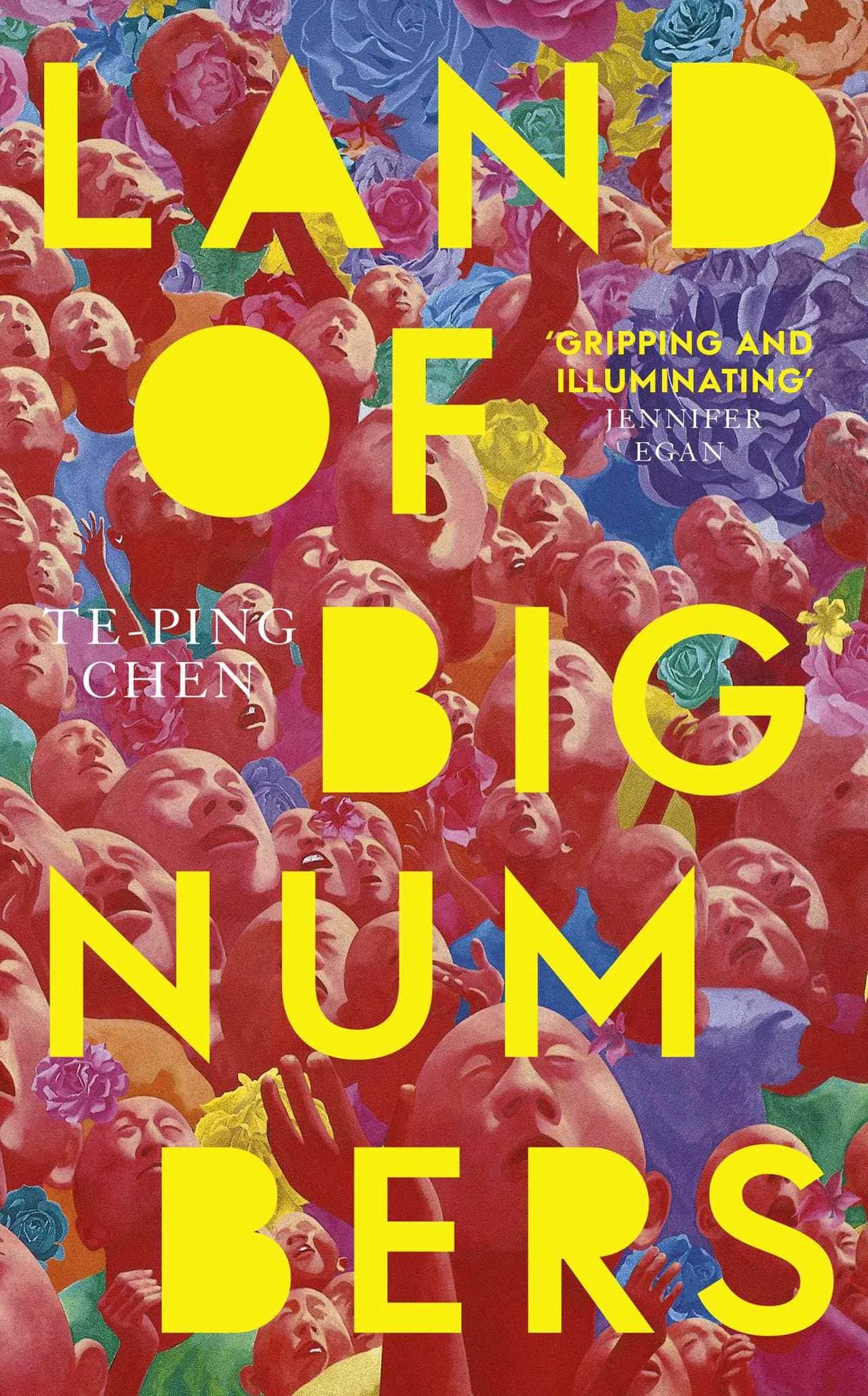Paul French interviews Te-Ping Chen, author of ‘Land of Big Numbers’, about how a combination of journalism and story writing can deepen our understanding of China’s fascinating but often voiceless characters
This column usually looks at business books, case studies, histories, or economic treatises, but this time we’re focused on fiction. Te-Ping Chen is a Chinese-American writer and journalist who has been based in both Hong Kong and Beijing with the Wall Street Journal. But she has another life as a short story writer and has been published in an impressive array of journals including The New Yorker and Granta. ‘Land of Big Numbers’ (Scribner) is Chen’s first published collection, consisting of ten short stories, all of which engage with contemporary China in one way or another. All of her stories shed light and bring voices to a variety of Chinese characters we may have briefly read about or interacted with but have never really known. Here are the call centre worker, the subway commuter, the migrant, the computer gamer, the nail house dweller, the stock market day trader, the back yard engineer.
In ‘Land of Big Numbers,’ you’ve chosen to use fiction to tell contemporary stories. Anyone reading China stories in the newspapers in the last decade will recognise many of your initial premises as ‘ripped from the headlines,’ but they invariably head off in other directions, taking unexpected turns. How do you feel your fiction writing adds to your journalism?
Working as a reporter, especially when writing short dispatches, it can sometimes feel like you’re capturing the architecture of stories, but not always what’s inside them. As a foreign correspondent in Beijing, the headlines I covered were mostly driven by high-level news: foreign relations, state policy, trade. Yet what I found most compelling about life in modern China was what was inside the house: the people, relationships, the particular and the human. From a distance, so much of China tends to get reduced, with the country often seen as a monolith; people think about GDP, statistics, the Chinese Communist Party. I hope ‘Land of Big Numbers’ in some ways offers a corrective to that: a reminder of the highly individual voices, pursuits, and people – creative, ambitious, and deeply resilient – that define life in China beyond the headlines.
I truly believe you can’t understand modern China without having a deeper view of its people, and that’s what I hope ‘Land of Big Numbers’ offers up: a nuanced, more empathetic portrait of a place that often gets lost in translation. I also found fiction was a way to capture certain parts of what I love about the country that journalism doesn’t perhaps as easily render: its beauty, humour, and playfulness, in addition to its politics.
Your first story, Lulu, concerns two twins who go in different directions in life. To me, this story, as well as elements in some of the others, speak to the extreme randomness that often seems to apply to life in China – who wins and who loses can seem so random compared to our perhaps more structured lives in Europe or North America. Do you see anything in that reading?
That’s a good question! I tend to see life as full of ungovernable outcomes. No matter where we live, so much of what we endure or are uplifted by seems like accidents of birth or privilege or being at the right place at a particular time (or the wrong one). What fascinates me in Lulu, and some of the other stories as well, is how two people can respond to the same set of circumstances in such radically different ways. So, in Lulu, one twin ends up becoming an online activist and dissident of sorts, while the other winds up becoming a professional video gamer. Even though they’re born to the same expectations in the same society – and the same household! – they wind up on starkly divergent paths, all because of the contrast in the lenses they apply to the world.
As someone who regularly skids back and forth between fatalism and optimism, I’m drawn to characters like Lulu, who are able to see their purpose in the world with such clarity. As you note, life can feel shot through with so much randomness. It’s rare to meet people like Lulu, but as a reporter in China, I felt fortunate to encounter more than my share.
Many of your strongest stories seem to invoke allegory. New Fruit is a favourite of mine. A delicious new fruit – qiguo – appears in markets all over the city. At first, everyone loves the new taste, the senses it invokes, but then the following year the taste is different, something has changed, it’s all a disappointment where before it was a revelation. Is it fair to see New Fruit as an allegory for the pace of change in Chinese society over the last three decades?
Oh, wow, I’ve gotten quite a bit of commentary from readers on New Fruit, but haven’t actually heard that interpretation before. To be honest, that hadn’t occurred to me, but I love that you read the story that way. Nostalgia works in such funny ways. As it happens, while I was writing New Fruit, the neighbourhood in Beijing that I was writing about – one of the old hutong areas near Beixinqiao – was undergoing extraordinary changes, with the government bricking up many of the mom-and-pop establishments that made up the fabric of the area and many residents getting displaced. I wasn’t strictly thinking about nostalgia while writing that story, which to me was more about using magical realism to explore what it’s like to live in a society where so much has been deliberately forgotten or sits veiled. But a feeling of nostalgia was absolutely bound up in the writing of that story, given how swiftly everything was being transformed around me.
China isn’t one story, it’s billions of stories
This isn’t nostalgia, exactly, but I was also writing ‘Land of Big Numbers’ at a time when the government’s attitude toward foreign media and peoples’ willingness to engage was changing in very palpable ways. And that awareness also shaped the writing of the book and gave it a feeling of greater urgency, too.
Your story Shanghai Murmur concerns Xiaolei, a migrant worker who finds a job as a florist and, of course, dreams big dreams. Yet it seems Xiaolei can only ascend so far in the city before she hits a glass ceiling that pushes her back. It seems to suggest you think social mobility beyond the basic rise out of poverty is not really possible …
I wouldn’t say so. The odds are steeply stacked against Xiaolei, but she’s also someone who takes risks and has drive and a sense of her own self-worth. She gets on a train with nothing more than a fictitious job offer. She quits a job once her superior starts harassing her. When we meet her, she’s still very young, and the scope of her ambitions and aspirations exceeds her reach, and we see moments when that realisation chastens her, most notably in an encounter involving a customer and a Mont Blanc pen. Yet I actually feel optimistic about Xiaolei’s life chances. No, she won’t likely become a millionaire, but during my time in China, I spoke to many people who had wrested themselves out of seemingly impossible situations and created new lives that, if not strictly wealthy, were something much more proximate to it, a life of comfort and ease and choices. There are, of course, many more millions of migrant workers like Xiaolei who don’t end up substantively changing their life circumstances beyond a basic rise out of poverty. But there are absolutely those that do.
The story that gives the collection its title, ‘Land of Big Numbers’, concerns China’s stock market dreams. Two young men, one poor, the other rich, play the market. Aspiration can make people vulnerable to cheats and con artists as get-rich-quick schemes proliferate. Does the fact that new innovations and possibilities – wealth, stocks and shares – come without any schooling in these new phenomena mean that some people lose out and are ultimately unable to catch up?
I think Zhu Feng, the poor investor, is the victim of naïveté, as well as a certain misplaced faith in the government. He’s a young government bureaucrat who prides himself on being street smart and savvy, much more so than the older men left behind by the economy like his father, who he scorns. Yet at the point we meet him in the story, like many of his generation, he’s never truly been tested or tried, and when he gets swept up in the frictionless ease of this new playground, the stock market, he really doesn’t have many defences. Ironically, it’s his unschooled father who turns out to be wiser in some ways. The story is absolutely about two young men playing the stock market but to me, it was also about a generation gap between the main character and his father, and the surprising knowledge of each other that they acquire along the way.
And yes, it’s also about what you describe – what it’s like to be young and ambitious and desperate, and trying to find any way possible to catch up with your wealthier peers, while also having a certain blindness to the struggles of those around you.
This is also perhaps a theme of my favourite story in the book, Gubeikou Spirit, where a group of subway commuters become stranded in a station. They cannot leave, no trains come, they must persevere against the backdrop of the repeated slogan, ‘We’ll Get There Together’. Yet the tale suggests that while that may ultimately be true, not everyone will get there at the same time, in the same way, or by the same route and that the concept of ‘there’ is different for everyone anyway. In the story, we see that trains don’t always stop for everyone, tunnels often lead nowhere, some cave in, some are dead ends, others are under construction just beyond our reach. Is this your perfect allegory for China in the 21st century so far?
I’m so glad to know you enjoyed that story. I don’t know what the perfect allegory for China in the 21st century is. But you’re correct that so many of the themes the story evokes are precisely the ones that, to me, are at the heart of life in modern China. On the one hand, it’s a story about public transportation, bureaucratic overreach, and a system that breaks down. But it’s also about what it means to live in a society in which one’s choices are so constrained, and how adaptive human nature is, and how powerful – and frightening – that trait can be.
Over the course of the story, we see this group of commuters alternately turn on each other and band together, and how their sense of self is shaped by state media. We see their sense of civic pride and how resilient they can be, and how that resilience is a double-edged sword. There’s ramen and politics and bad TV shows. There’s earnestness and cynicism, romance and recriminations and people like the main character, who are determined to find their way out. Each time I reread it, I find myself sympathising with a different character, and likewise, I hope the reader comes away being able to see through different eyes, as well. China isn’t one story, it’s billions of stories, and I hope ‘Land of Big Numbers’ opens up more audiences to the complexity of the world it contains.






